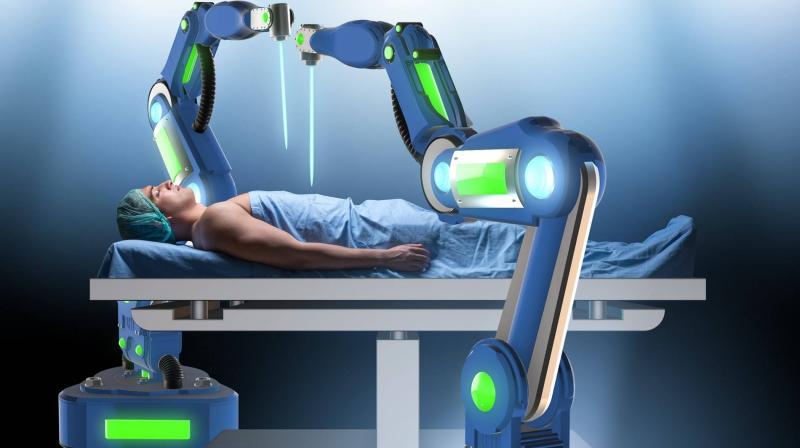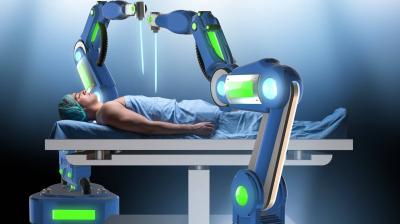In what can be considered a historic moment for the dental profession, an autonomous robot controlled by artificial intelligence has performed a complete surgical procedure on a human patient for the first time, approximately eight times faster than a human dentist could, according to a report by New Atlas. The system, built by Perceptive in Boston, employs a handheld 3D scanner that creates a detailed three-dimensional model of the mouth, including teeth, gums, and even the nerves beneath the tooth surface, using optical coherence tomography (OCT), which eliminates the need for harmful X-rays during the procedure, as OCT uses only light to construct its volumetric models, achieving high accuracy with automatic cavity detection at about 90% accuracy.
At this stage, the dentist (human) and the patient can discuss what needs to be done - but once these decisions are made, the robotic dentist takes over. It plans the operation and then proceeds with it.
#### Accomplished in 15 Minutes
The first task designated for the machine is preparing the tooth for a crown installation. Perceptive claims that a procedure which usually takes two hours and is typically divided into two visits by dentists can be completed by the robotic dentist in approximately 15 minutes. Notably, the company asserts that the machine can perform the work safely "even in the most movement-prone conditions," and that trials on moving humans were successful, which followed a phase of laboratory animals.
#### Medical Breakthrough
Dr. Chris Cirillo, CEO and founder of Perceptive, expressed his excitement about successfully completing the world's first fully robotic dental procedure. He stated, "This medical breakthrough enhances the accuracy and efficiency of dental treatment and contributes to improving patient experience and clinical outcomes," emphasizing his anticipation for "developing the [innovative] system and leading scalable, fully automated dental care solutions for patients."
#### Artificial Intelligence and Detailed Focus
Dr. Karim Zaklama, a general dentist and member of the clinical advisory board of Perceptive, added, "Perceptive's AI-driven robotic system will transform dentistry. The patient experience will improve due to streamlined procedures and enhanced patient comfort. Advanced imaging capabilities, especially the intraoral scanner, provide unparalleled detail that will enable earlier and more accurate problem diagnosis and facilitate better communication with patients. This efficiency also allows for a greater focus on personalized patient care and reduces chair time, thereby enabling more patients to be treated effectively."
The robot has not yet been approved by the U.S. Food and Drug Administration (FDA), and Perceptive has not specified a timeline for its market release, so it may take a few years before the public can access this type of treatment.




